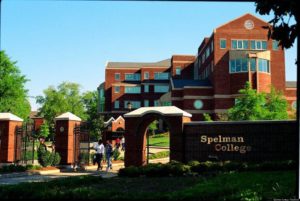
Obama called on the nation’s 105 Black colleges to run more efficiently, graduate more students and not hinder them with significant debt, angering some at a Congressional Black Caucus meeting who believe his policies have contributed to the problems.
“We are not consulted when it comes to policy changes and decisions impacting — in a major way — the institutions on whose behalf we are to advocate,” Hampton University President William Harvey, who chairs the advisory board, said at a board meeting in February. “Overall support to Black colleges is down.”
HBCU advocates point to a restrictive federal loan policy that they say has shut out many families interested in sending their children to historically Black colleges. In addition, the administration is primed to unveil a new college ratings system that HBCU leaders say could unfairly keep their schools from receiving more aid.
Also, when the president recently unveiled a new initiative to pay for community college tuition, he did it without consulting HBCU leaders, who say their schools should be eligible for help since they also serve low-income students.
“The president thinks that HBCUs — and there may in fact be some — are failing our students,” Rep. Marcia L. Fudge (D-Ohio), who was at the meeting, said to the Washington Post. “But there needs to be an open dialogue about higher education and why HBCUs have historically gotten short shrift when it comes to resources and recognition.”
However, the Education Department points out that revenue to HBCUs from the federal government decreased during the recession, prior to Obama taking office, and increased across the board during the first two years of his administration. Federal funding of the schools from the Department of Education has increased 40 percent since 2007, including grants for more African American students.
As part of extending the reach of his “My Brother’s Keep” initiative, directed at aiding young Black men, Obama visited Benedict College, a historically Black school in South Carolina. Meanwhile, many HBCUs have been in financial straits for years, primarily because of inadequate alumni contributions, poor management and varying degrees of government support.
The issue, those concerned say, is that assistance for HBCUs should come consistently and not just when schools are on the verge of shutting down.
Rep. Danny Davis, a Democrat from Illinois, was at the CBC meeting and said he did not consider the president’s message offensive. “It wasn’t a dig at HBCUs,” Davis said. “We need to direct as much assistance to these schools because what they’re doing is invaluable.”
“The administration is strongly supportive of historically black colleges and universities,” said Education Undersecretary Ted Mitchell. “We have been strong supporters in word and deed.”


